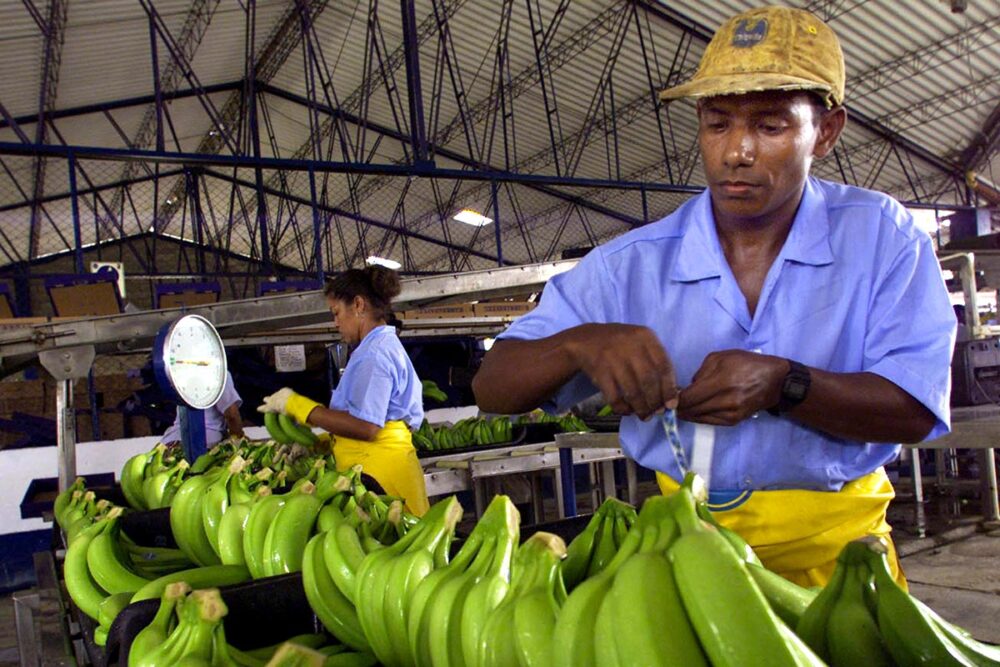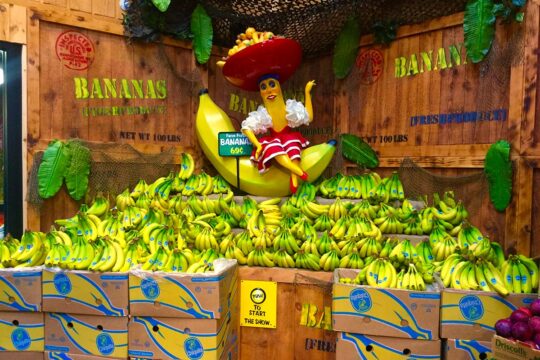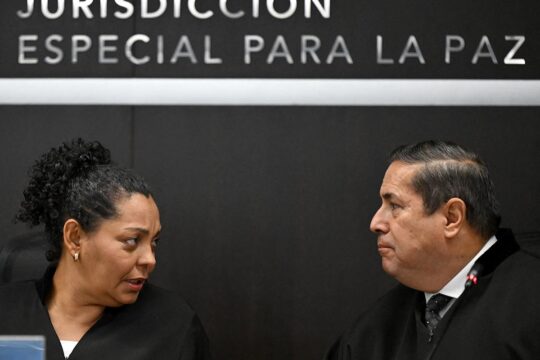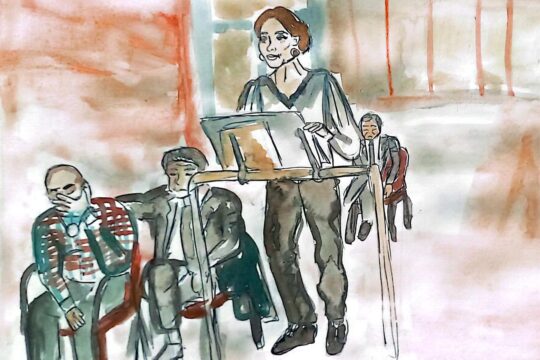On June 10, 2024, a jury in Florida, USA, delivered a landmark ruling in the fight for justice for the crimes committed during Colombia’s armed conflict, holding Chiquita Brands International liable for 38 million dollars in damages. The verdict found that Chiquita, the multinational and internationally renowned banana company, failed to act as “a reasonable business person” and provided substantial assistance to the United Self-Defence Forces of Colombia (AUC, for its Spanish acronym), a paramilitary organization designated as a terrorist group by the United States. This financing, carried out for profit, contributed to a wave of crimes and human rights violations, including the murder of hundreds of civilians.
The Chiquita case is rooted in a series of lawsuits filed by victims of the AUC, a right-wing paramilitary armed group that played a crucial role in the decades-long Colombian armed conflict. The war involved multiple actors, including the government, leftist guerrilla groups such as the Revolutionary Armed Forces of Colombia (FARC), and right-wing paramilitary organizations such as the AUC. The plaintiffs, survivors and relatives of victims, alleged that Chiquita’s support for the AUC contributed to a campaign of violence, including murder, displacement and land dispossession in Magdalena and Urabá regions in northwestern Colombia. A US-based company, Chiquita operated in these regions from the late 1980s until the mid-2000s, when the war was at its most violent stage.
Initially, the lawsuits were condensed into one case involving thousands of plaintiffs and known as Multidistrict Litigation, which sought redress under federal statutes addressing human rights violations committed outside the United States, such as the Alien Tort Statute and the Torture Victim Protection Act. This Act grants federal district courts jurisdiction over any civil action where an “alien” sues for a tort “committed in violation of the law of nations or of a treaty of the United States”. However, these claims were either dismissed or are under appeal. A rarity of the case was that it ultimately was litigated under Colombian tort law with interpretations based on US legal standards. It also involved multiple sources of evidence from a Colombian transitional justice mechanism known as Justice and Peace, a special procedure set in 2005 to judge paramilitary commanders.
Chiquita’s role in the Colombian conflict exposed
Chiquita Brands International, originally known as the United Fruit Company, has a controversial legacy tied to colonialism, significant human rights abuses, and political interference in Latin America. Founded in 1899, the United Fruit Company became a powerful player in the banana trade, wielding immense influence over the economies and politics of several countries. In Colombia, the company was allegedly implicated in the infamous banana massacre of 1928, where violent repression of striking workers resulted in several deaths, highlighting the company’s brutal labour practices. Its role in Guatemala was equally heinous, where its lobbying efforts led to the CIA-backed coup in 1954, overthrowing the democratically elected government of Jacobo Árbenz, who had implemented agrarian reforms threatening the company’s monopolistic control.
In Florida, the trial exposed Chiquita’s role in the Colombian war, the payments, and the logistical support it provided to the AUC, including gasoline and transportation for weapons. The company’s defence argued that these payments were made under duress from the AUC. Chiquita portrayed itself as a victim of extortion and an exemplary corporate actor that maintained stability in the regions where it operated, asserting that its payments were necessary to survive in a highly volatile environment. However, the plaintiffs, which represented only nine families selected among thousands of victims, presented detailed and heart-wrenching evidence and testimonies of the violence inflicted by the AUC and Chiquita’s role in it.
The trial itself was considered a bellwether trial, setting the stage for all the other cases and acting as a barometer in anticipation of the complex litigation to follow. The jury was tasked with deciding whether Chiquita’s actions constituted a failure to act as a “reasonable businessperson” and whether the company’s support contributed substantially to the violence caused by the AUC.
This was not Chiquita’s first clash: the Florida case’s background was marked by Chiquita’s 2007 plea agreement with the US Department of Justice (DOJ), where the company admitted to financing the AUC between 1997 and 2004. Chiquita agreed to pay a 25 million dollar fine, implement a business ethics program, and serve five years of probation. The DOJ’s investigation uncovered that Chiquita made over 100 payments, totalling more than 1.7 million dollars, to the AUC through its Colombian subsidiary, Banadex. This critical evidence underscored the financial ties between Chiquita and the paramilitary group and provided a robust foundation for the civil trial in Florida. However, it is essential to highlight that this previous criminal conviction in the United States did not present a path toward compensation for victims or justice in Colombia.
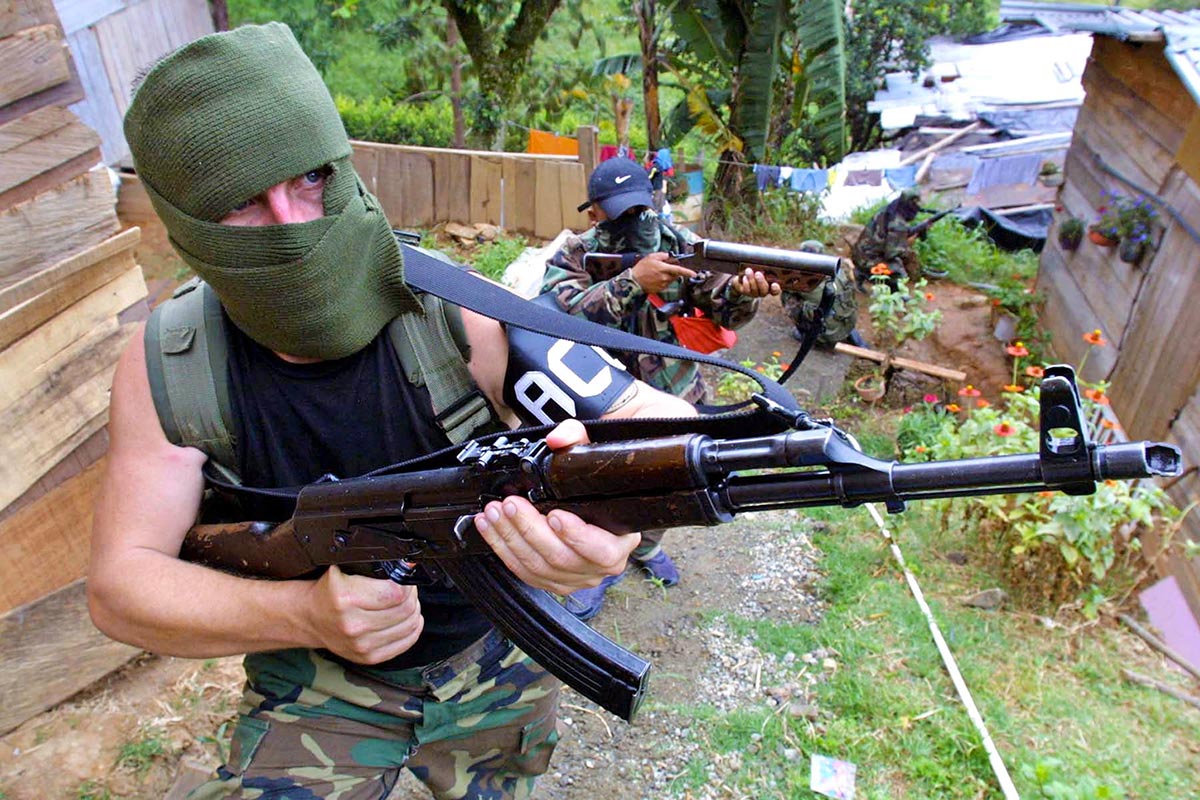
A complex web of complicity unravelled
The six-week trial in Florida was an intricate legal battle, showcasing the complexities of proving corporate complicity in human rights violations in armed conflict contexts. Central to the case was demonstrating that Chiquita’s payments and support to the AUC were not only deliberate but significant enough to impact the violence committed by the paramilitaries. The plaintiffs, whose family members were assassinated by the AUC, faced the formidable task of proving that the AUC killed their loved ones and connecting the payments to the atrocities committed.
The evidence presented in court was extensive and compelling. The plaintiffs’ legal team assembled a robust case that included testimonies from survivors, victims and experts of the Colombian conflict, analysis of the so-called “Chiquita Papers” and detailed accounts of violence in the banana-growing regions. These documents and testimonies painted a clear picture of Chiquita’s involvement in financing a terrorist organization. On the other hand, in its efforts to portray itself as a model corporate actor, Chiquita heavily relied on its Rainforest Alliance (RFA) certification to demonstrate exemplary compliance with environmental and labour standards, presenting it as a near-perfect benchmark and as evidence of responsible corporate behaviour.
A crucial aspect of the trial was the “battle of experts”, where expert testimonies significantly shaped the jury’s understanding of the conflict and Chiquita’s involvement (see our second article on this topic).
A new era of corporate accountability litigation
Holding Chiquita liable for 38.3 million dollars in damages sets a precedent for future cases involving corporate complicity in human rights abuses in contexts of armed conflict. This issue has often been ignored or challenging to address for transitional justice, despite being at the centre of understanding how conflict is fuelled and how armed groups are financed to sustain the incredibly exorbitant cost of war. The trial’s outcome also opens two critical discussions.
The first one concerns the issue of impunity in Colombia and the years-long investigations by the prosecutor’s office, which have not yet yielded any meaningful outcomes. Immediately after the verdict, President Gustavo Petro publicly posted the following questions: “Why was the US justice system able to determine that Chiquita Brands financed paramilitarism in Urabá? Why couldn’t the Colombian justice system?” The Colombian case continues to move forward against Chiquita executives, and the Florida case has certainly pushed prosecutors to accelerate the process in Colombia.
The second issue is about the impact of this verdict on the field of transitional justice, a matter of particular importance. Corporate support for serious human rights violations committed by armed groups in Colombia remains the missing link in transitional justice. Non-judicial mechanisms, like the Truth Commission that concluded in 2022, alongside judicial processes such as the Justice and Peace initiative and land restitution efforts, have aimed to address corporate involvement in the conflict, as outlined by Bernal-Bermùdez and Sánchez. However, significant gaps in holding corporate actors accountable still persist. For this reason, the fact that these proceedings are taking place in the US justice system can serve as support, as it highlights corporate complicity in Colombia’s transitional policy – as also seen in the case of the American coal company Drummond Ltd.
Although the Chiquita verdict is rare in the fight against corporate impunity, it also emphasizes the importance of continued advocacy and legal action to ensure that corporations are held accountable for their role in human rights violations. The Chiquita case is a critical example of the intersection between corporate behaviour, legal accountability, and transitional justice.
A rogue attorney and other challenges ahead
The case serves as a reminder of the need for rigorous documentation and reporting in such cases. Despite the victory, legal issues have been raised concerning the compensation caps, and the judge in the case has postponed subsequent bellwether trials involving other victims in this complex litigation. Chiquita also announced it would appeal the decision, which could take up to two years.
In addition to the ongoing legal proceedings, recent developments also highlighted fairness issues in the victims’ settlements. A controversial settlement was reached by attorney Paul Wolf, where families of victims, also involved in this complex litigation, were to receive a mere 1,300 dollars per victim. At the same time, Wolf stood to collect over 4 million dollars in fees. This stark disparity in compensation has sparked outrage, with Colombian President Gustavo Petro condemning it as an insult to the value of Colombian lives. Affecting around 2,500 victims, this settlement contrasts sharply with the landmark 38.3 million dollars verdict that awarded millions to the nine plaintiffs, raising questions about the adequacy and equity of legal resolutions and the unethical behaviour of individual attorneys. Wolf, who was not even part of the trial, has previously been accused of going rogue, casting a shadow over this hard-won victory and complicating the path for justice and accountability.
A significant moment in the pursuit of justice for victims of corporate-sponsored violence, the Chiquita trial challenges traditional views of corporate responsibility where impunity is the norm. It highlights the need for continued vigilance in ensuring that such companies are held accountable for their actions. Hopefully, the trial’s outcome will have far-reaching implications for future cases and the broader discourse on corporate accountability and transitional justice.

Tatiana Devia is an attorney and legal consultant. She is the founder of the Justice Horizon Initiative, which reimagines transitional justice and addresses the impacts of armed conflict on human and environmental rights. She is also an adjunct professor at Florida Gulf Coast University’s Criminal Justice Department.
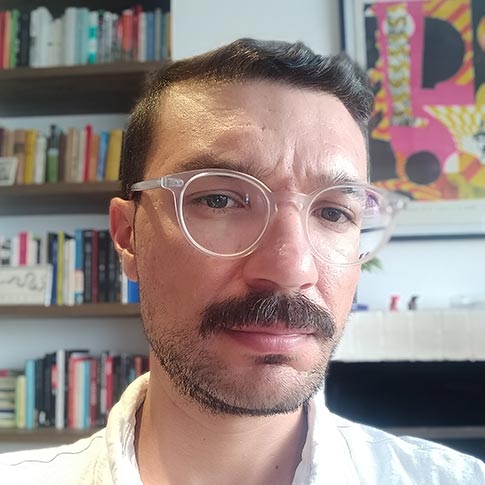
Daniel Marín López is an independent researcher on the relationship between business and human rights violations in armed conflict. He is a co-creator at Enramada, a collective that creates spaces to address silenced issues, challenging power and driving social change. He is also a Transdisciplinary PhD Researcher at the National University of Colombia.


